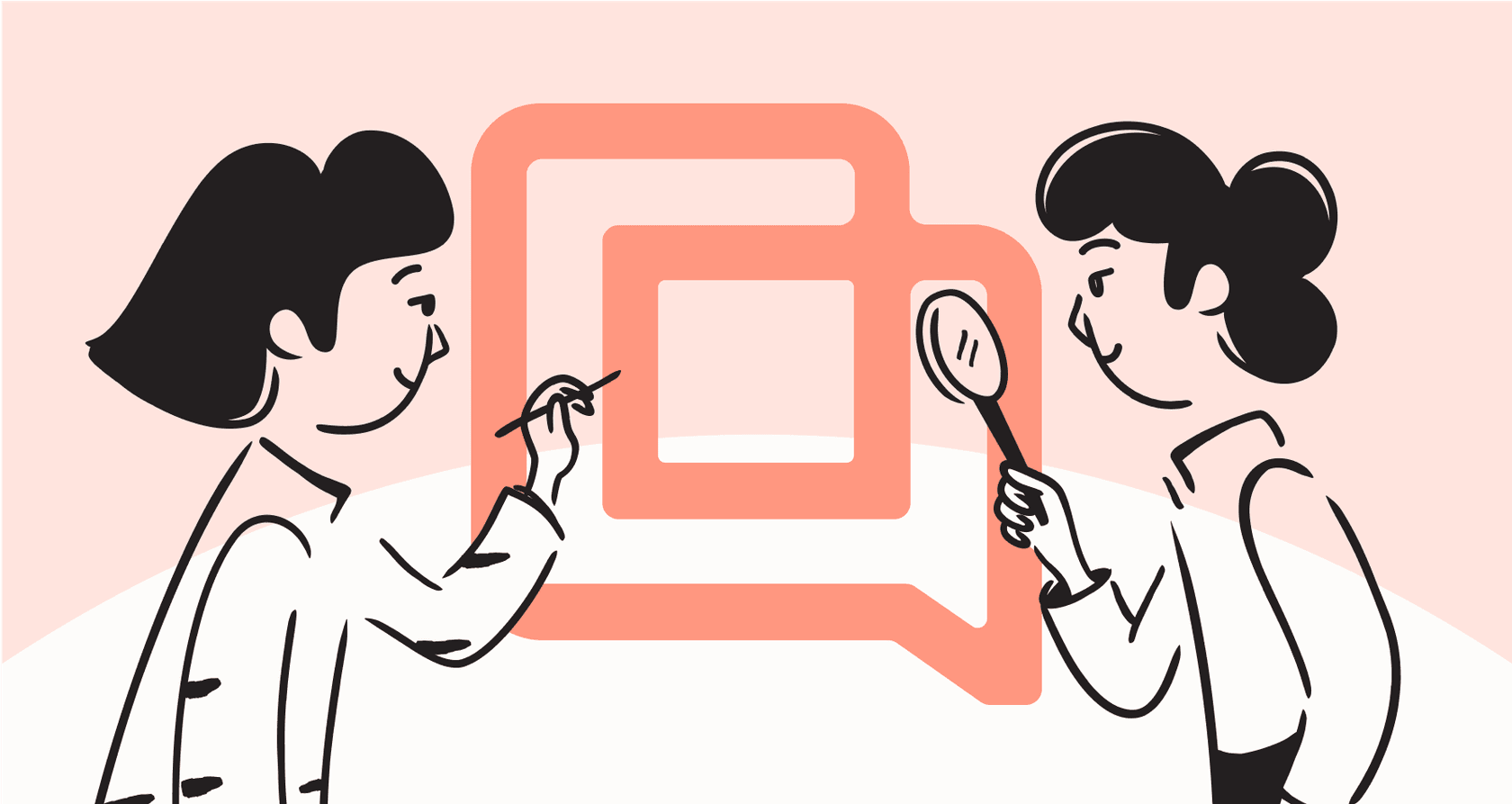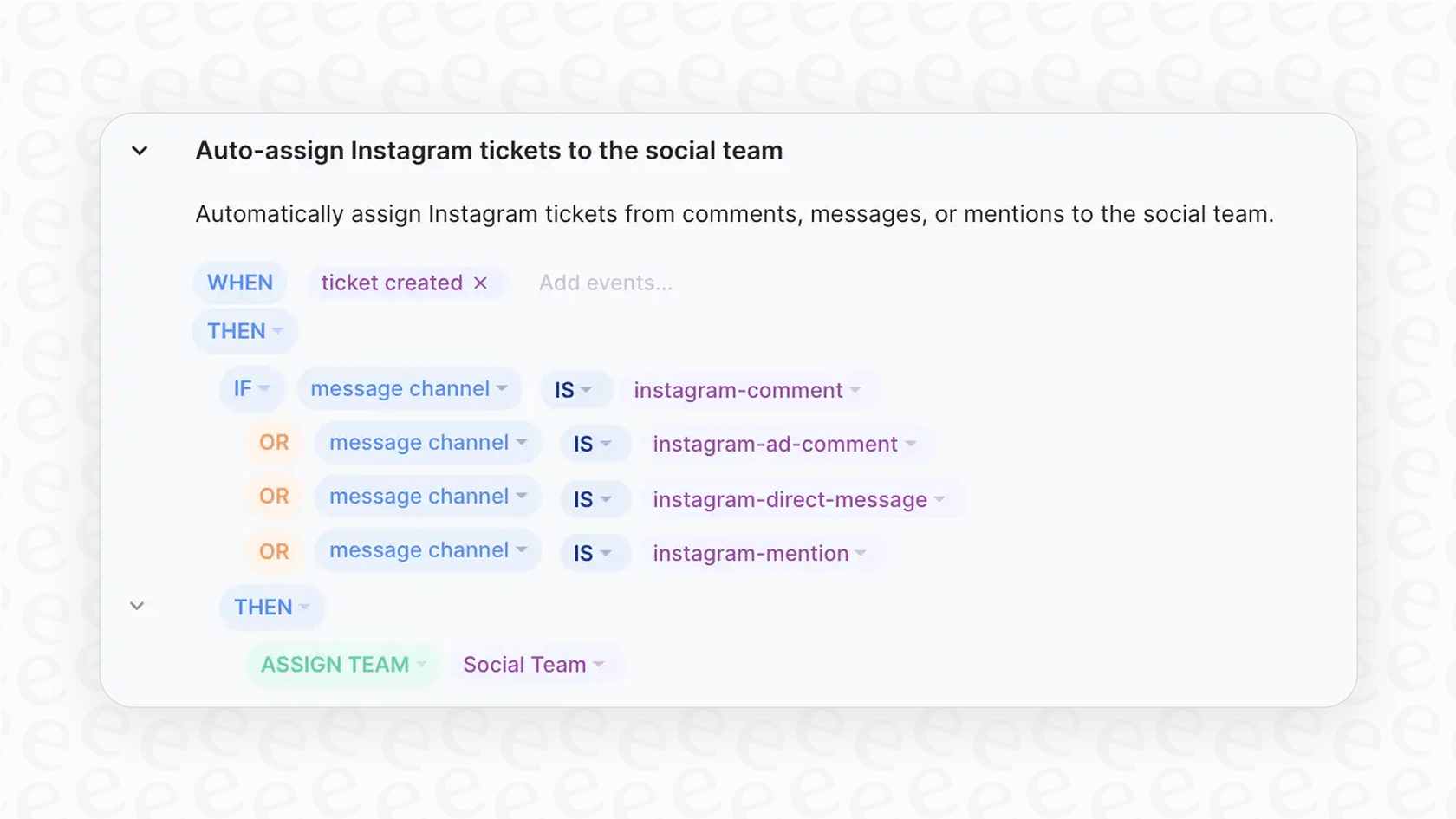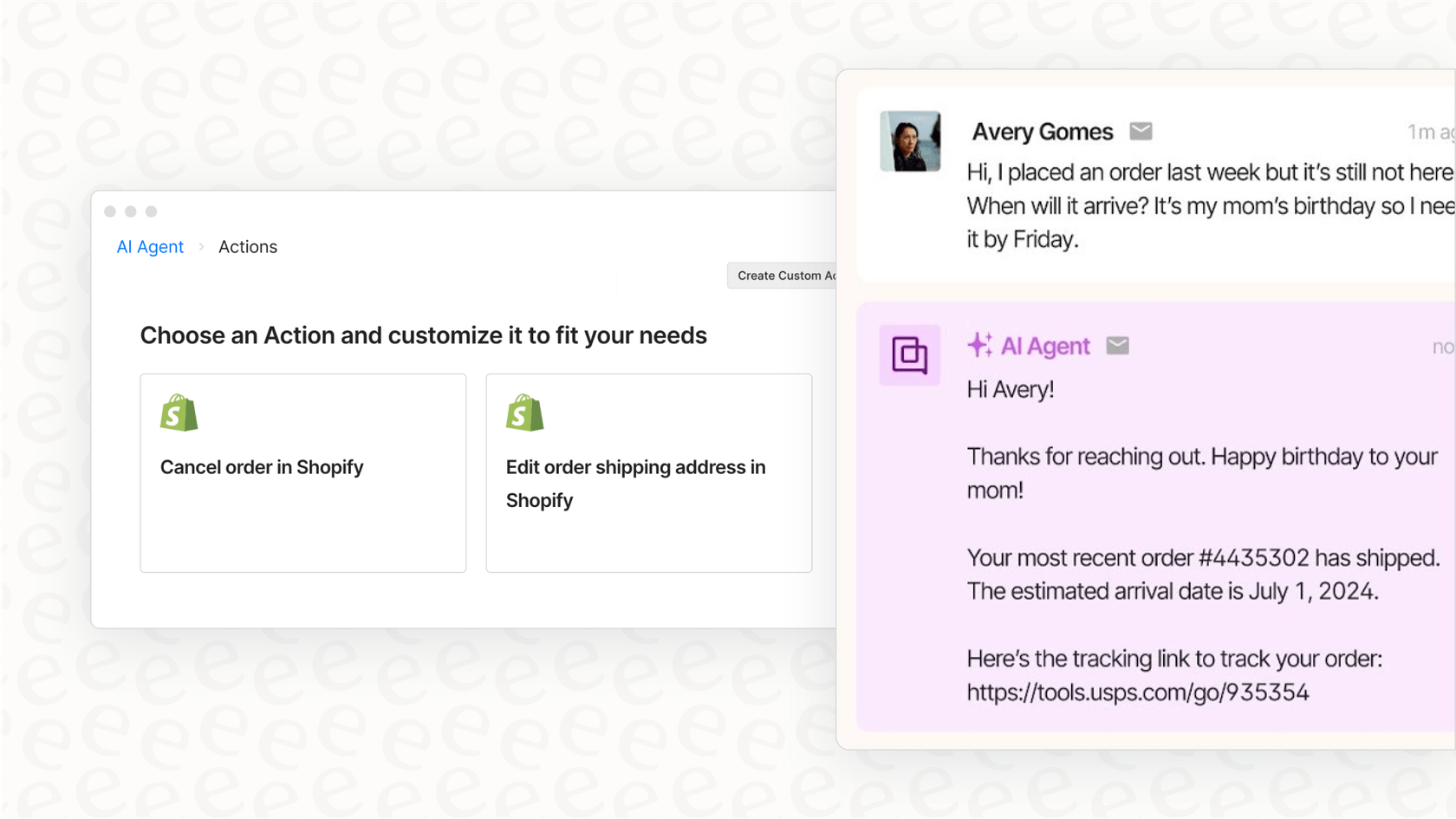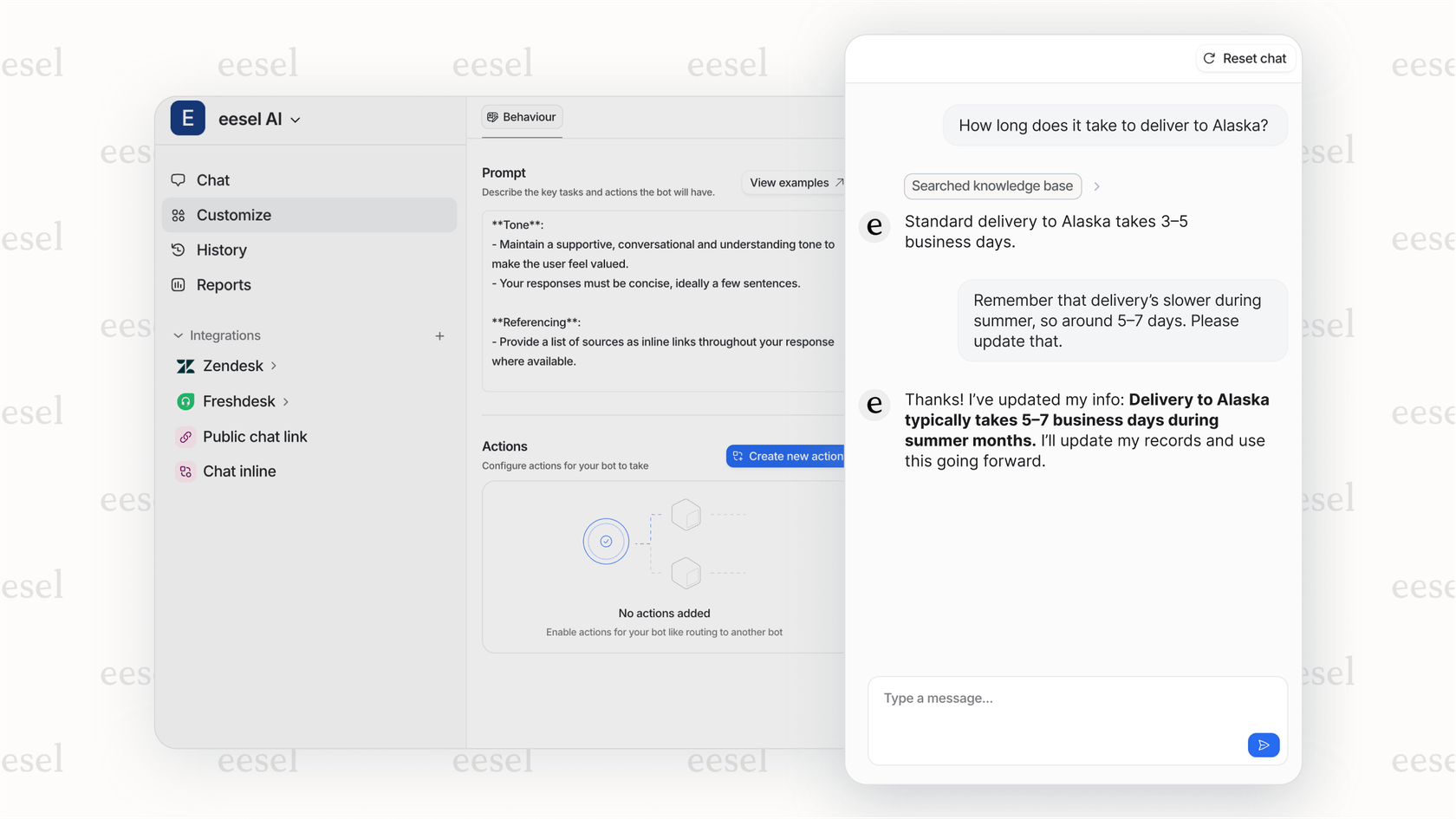A 2026 guide to the Gorgias ecommerce helpdesk: Features & pricing

Stevia Putri

Stanley Nicholas
Last edited January 16, 2026
Expert Verified

If you’re running an ecommerce brand, you know the drill. Customer questions pour in from every direction: email, live chat, Instagram DMs, Facebook comments. Trying to keep up with all those channels is a surefire way to miss messages, reply slowly, and end up with some unhappy customers. It’s a classic growing pain, and it’s exactly what specialized helpdesks are made for.
One of the biggest names in this space is the Gorgias ecommerce helpdesk. It was built from the ground up to handle the unique chaos of online retail. In this post, we're going to walk through what Gorgias is, what it does best, and how its pricing works. By the end, you should have a really clear idea of how it can help your business thrive in 2026.
What is the Gorgias ecommerce helpdesk?
Think of Gorgias as a central command center for all your customer conversations. It’s a customer service platform designed specifically for ecommerce stores, especially those on Shopify, BigCommerce, and Magento. Instead of your support team bouncing between an email inbox, social media apps, and your store’s admin panel, Gorgias pulls everything into one streamlined dashboard.
Its main job is to grab customer messages from every channel (email, chat, SMS, social media) and turn them into organized tickets. The real magic for ecommerce brands is its deep connection to your store. When an agent opens a ticket, they see the customer’s entire order history and shipping details right there next to the message. This context means they can give fast, personal, and genuinely helpful support without having to juggle a dozen different tabs.

While Gorgias has its own tools to automate simple, repetitive questions, it's still a helpdesk at its core. It's built to make human agents more efficient. That's actually why platforms like eesel AI integrate directly with it, to add another layer of smart automation on top.
Key features of the Gorgias ecommerce helpdesk
Everything about Gorgias is built around the day-to-day reality of running an online store. It's less of a generic, one-size-fits-all tool and more of a specific solution for the problems ecommerce support teams face every single day.
A central inbox for all channels
At its heart, Gorgias is a shared inbox on steroids. It pulls in conversations from all the places your customers might try to reach you: email, live chat, Facebook and Instagram (both comments and DMs), SMS, and even phone calls.
This is a huge win for efficiency. When your team can see and reply to an Instagram comment, an email, and a live chat from the same screen, nothing slips through the cracks. It also creates a much better experience for your customers, since they get consistent answers no matter how they get in touch. Of course, it includes all the standard helpdesk features you'd expect, like routing tickets to the right team, flagging urgent requests, and tagging conversations to keep things tidy.
Deep integration with Shopify and other platforms
This is where Gorgias really stands out. Its connection with major ecommerce platforms is incredibly tight. If you’re on Shopify, for example, an agent can do a lot more than just look at order information. They can take action, right from the helpdesk. They can:
-
Issue a full or partial refund
-
Cancel an order
-
Edit order details
-
Check on product inventory
This saves a massive amount of time. Your support team doesn't need to keep a separate tab open for the Shopify admin to handle most of their daily work. They can solve a customer's problem in one spot, which means quicker resolutions and happier shoppers.

Using macros and rules for automation
To handle the constant stream of "Where is my order?" questions, Gorgias gives you two main tools: Macros and Rules.
Macros are basically canned responses. But instead of being just plain text, they can automatically pull in customer details like their name, last order number, or a shipping tracking link. This lets your agents send personalized, detailed replies with just a couple of clicks.
Rules are the engine that makes the automation happen. They work on a simple "if this, then that" logic. You can set up rules to automatically tag tickets, assign them to a specific person, or even send an automated reply using one of your Macros. For example, you could create a Rule that spots any ticket with the phrase "track my order" and automatically replies with a Macro that includes the customer's live tracking info from Shopify.

Understanding the Gorgias ecommerce helpdesk automation and AI
Like pretty much every modern helpdesk, Gorgias has been adding AI features to help teams work smarter. Its AI is designed to streamline workflows and provide rapid support at scale.
The Gorgias AI agent
Gorgias offers an "AI Agent" that tries to resolve common questions directly. It's trained to handle the basics: order status inquiries, return requests, and other simple FAQs. The idea is to manage these easy tickets so your human agents can spend their time on conversations that benefit from a personal touch, like detailed pre-sales questions or nuanced complaints.

Beyond that, Gorgias has a few other AI-powered tools to help out human agents:
-
AI Tagging: Automatically categorizes tickets based on what the customer is asking about.
-
AI Summaries: Gives you a quick summary of a long or complicated conversation thread.
-
AI Translations: Translates customer messages and agent replies in real-time.
These features are excellent for making agents quicker and ensuring the helpdesk runs as a well-oiled machine.
How the Gorgias AI compares to other solutions
The AI in Gorgias primarily learns from your help center articles and the data from your ecommerce platform. This works great for answering standard, predictable questions. Gorgias focuses its AI on being a robust, native part of your helpdesk ecosystem.
For teams that want to expand their AI's knowledge base to include internal documents or past support tickets, they can look at complementary tools. Instead of needing to switch helpdesks, tools like eesel AI plug directly into Gorgias and instantly connect to all your scattered knowledge sources. This allows you to build a highly specialized AI agent that works alongside Gorgias, learning from your team's past conversations and internal documentation to handle more complex queries.
The importance of testing your Gorgias AI before you go live
One of the key parts of turning on any AI is ensuring it aligns with your brand's voice. You want to be sure it’s accurate and helpful. Gorgias provides control over this process, letting you use its Rules engine to decide when and how the AI gets involved.
To feel fully confident before going live, many teams use simulation features. Platforms like eesel AI complement Gorgias by letting you test your AI agent on thousands of your past tickets in a safe environment. You can see exactly how the AI would have responded to real customer questions, giving you a precise preview of your automation success. This combined approach lets you fine-tune everything so you can launch your automation with complete peace of mind.

Gorgias ecommerce helpdesk pricing explained
Choosing a plan is a key step for any growing ecommerce brand. Gorgias uses a ticket-based model, which allows for flexible scaling as your business expands.
A breakdown of Gorgias plans
Gorgias offers several plans, and each one comes with a certain number of "billable tickets" per month. This structure is designed to match different stages of business growth.
| Plan | Price (Monthly) | Billable Tickets/mo | Overage Cost | Best For |
|---|---|---|---|---|
| Starter | $10 | 50 | $0.40 / ticket | Small stores just getting started. |
| Basic | $60 | 300 | $40 / 100 tickets | Growing stores with more support traffic. |
| Pro | $360 | 2,000 | $36 / 100 tickets | Established brands needing more automation. |
| Advanced | $900 | 5,000 | $36 / 100 tickets | High-volume stores with advanced needs. |
| Enterprise | Custom | Custom | Custom | Large-scale operations. |
Source: Pricing info is based on data from Gorgias's pricing page and their Shopify App Store listing.
Strategic considerations
When choosing a plan, it's helpful to forecast your monthly ticket volume, especially during peak seasons like Black Friday. Gorgias's ticket-based approach means you pay for what you use, which is helpful for stores with fluctuating traffic. A billable ticket is generally any conversation that gets a response from a human agent, a Rule, or the AI Agent.
Keep in mind that some specialized features, like Voice, SMS, or specific AI Agent capabilities, may have their own pricing tiers. This allows you to customize your Gorgias setup with only the tools you actually need.
For businesses that prefer a highly predictable monthly budget regardless of ticket volume, complementary tools like eesel AI offer flat, feature-based tiers. By using eesel AI within your Gorgias environment, you can manage costs effectively while still enjoying the full power of the Gorgias platform.
Is the Gorgias ecommerce helpdesk right for you?
At the end of the day, the Gorgias ecommerce helpdesk is a seriously capable platform built specifically for online stores. Its deep integration with Shopify is a gold standard in the industry, and for many brands, it’s the ideal tool to bring professional organization to their customer service.
Gorgias is designed to grow with you. While ticket-based pricing is something to plan for, it reflects the platform's ability to handle high volumes for the world's biggest brands. Its built-in AI is a powerful starting point for automation, and the ecosystem is open enough that you can always add specialized tools to enhance it further.
Gorgias is a fantastic choice if you want a top-tier, all-in-one helpdesk designed for ecommerce. If you eventually want to add even more specialized, high-customization AI features to your Gorgias setup, it's easy to integrate a dedicated platform.
If you want to see how you can automate more of your support with a fully customizable AI that learns from all your knowledge, try eesel AI on your Gorgias helpdesk today. You can go live in minutes and see your potential automation rate with our risk-free simulation.---
Frequently asked questions
The Gorgias ecommerce helpdesk acts as a central command center, consolidating customer inquiries from all channels like email, chat, and social media into a single dashboard. Its primary function is to help support teams manage and respond to customer questions efficiently, especially for online stores.
The Gorgias ecommerce helpdesk offers deep integration with platforms like Shopify, allowing agents to view customer order history and shipping details directly within the ticket. This enables them to perform actions like issuing refunds, canceling orders, or checking inventory without leaving the helpdesk, streamlining support processes.
Yes, the Gorgias ecommerce helpdesk uses Macros for canned, personalized responses and Rules to automate actions based on triggers. It also features an AI Agent designed to automatically resolve common inquiries like order status updates, deflecting these simple tickets from human agents.
Pricing for the Gorgias ecommerce helpdesk is based on a ticket-based model, where plans include a set number of "billable tickets" per month. This allows stores to choose a plan that aligns with their specific support volume, with options to scale as the business grows.
The AI in the Gorgias ecommerce helpdesk leverages your help center articles and ecommerce platform data to provide accurate responses to standard FAQs. It is specifically optimized to handle ecommerce-related inquiries like order tracking and returns, making it highly effective for online retail environments.
The Gorgias ecommerce helpdesk offers plans ranging from Starter ($10/month) for small stores to Enterprise for large operations. It is designed to scale seamlessly, providing powerful tools that grow alongside your business as your ticket volume increases.
Share this post

Article by
Stevia Putri
Stevia Putri is a marketing generalist at eesel AI, where she helps turn powerful AI tools into stories that resonate. She’s driven by curiosity, clarity, and the human side of technology.




